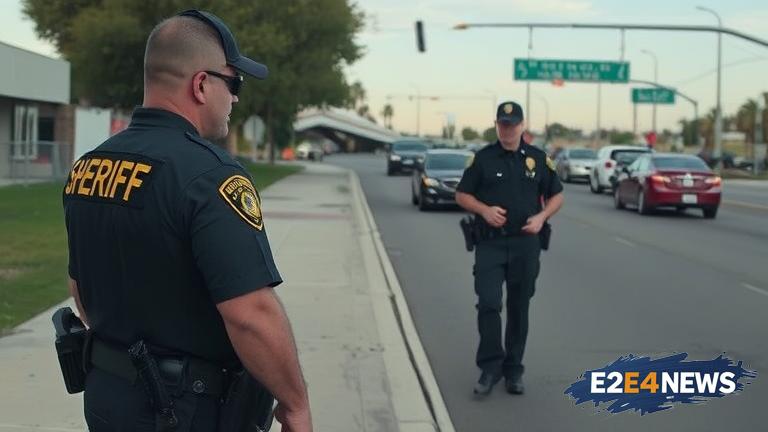The San Diego Sheriff’s Department has come under fire for deleting 36 hours of footage related to a wrongful death lawsuit. The lawsuit was filed by the family of a man who died in custody, and the deleted footage was reportedly crucial to the case. The department claims that the footage was deleted due to a technical glitch, but the family’s attorneys argue that it was intentionally destroyed to cover up wrongdoing. The incident has raised questions about the department’s transparency and accountability, and has sparked calls for an independent investigation. The deleted footage included video from the jail’s security cameras, as well as audio recordings from the dispatch center. The family’s attorneys claim that the footage would have shown that the man was not receiving proper medical care while in custody, and that the department’s actions led to his death. The department has denied any wrongdoing, but the deletion of the footage has made it difficult to determine what really happened. The case has drawn attention from civil rights groups and advocates for police reform, who argue that the incident is just one example of a larger problem with police accountability in the United States. The San Diego Sheriff’s Department has a history of controversy, including allegations of excessive force and racial profiling. The department has also faced criticism for its handling of internal investigations, with some arguing that it is too quick to clear officers of wrongdoing. The deletion of the footage has also raised concerns about the department’s policies and procedures for preserving evidence. The family’s attorneys have called for the department to release all remaining footage related to the case, as well as any internal communications about the deletion of the footage. The department has so far refused to comply, citing concerns about officer safety and the integrity of the investigation. The case is ongoing, and it is unclear what the ultimate outcome will be. However, the incident has already had significant consequences for the department, including damage to its reputation and relationships with the community. The department will likely face increased scrutiny in the coming months, as the case continues to unfold. The incident has also sparked a wider conversation about police accountability and transparency, with many calling for reforms to ensure that departments are more accountable to the public. The use of body cameras and other forms of surveillance has become increasingly common in recent years, but the incident highlights the need for clear policies and procedures for preserving and releasing footage. The department’s handling of the case has also raised questions about the role of technology in policing, and the need for departments to invest in systems and training that can help prevent similar incidents in the future. The case has significant implications for the community, and will likely be closely watched by civil rights groups and advocates for police reform. The incident has also sparked concerns about the impact of police misconduct on communities of color, who are disproportionately affected by police violence and misconduct. The department’s response to the incident will be closely watched, and will likely have significant consequences for its relationships with the community. The case is a reminder of the need for ongoing efforts to reform policing practices and increase accountability, and the importance of transparency and community engagement in building trust between law enforcement and the communities they serve.
